yeovil trades & traders
Walter Samuel Rendell
Photographer of Middle Street
Walter Samuel Rendell was born on 31 March 1874 at St Thomas Street, Melcombe Regis, Weymouth, Dorset, the tenth of the eleven children of house painter Henry Alfred Rendell (1830-1916) and Charlotte Cooke née Crocker (1829-1908). In the 1881 census the whole family were living at 16 St Thomas' Street together with an apprentice and a servant. By 1891 Walter was apprenticed to his brother Frederick, a draper, at 30 Bedford Place, Southampton, Hampshire. The 1901 census recorded Walter as a visitor in the house of William Tarver in Camberwell, London. Walter was to marry Tarver's daughter, Florence Amy known as Florrie, in Camberwell on 26 December 1901. They were to have two children; Mary (b1902) and William Ernest (b1908).
By the time of the 1911 census they were living at 7 Alma Road, Weymouth and Walter was working as a Photographer's Assistant. Walter moved his family to Yeovil and set up his own photographic studio in 1913 at 55 Middle Street and was listed as a photographer in many trade directories from 1914 onwards, initially trading as WS Rendell and later as WS Rendell & Son as William joined his father in the business.
Walter Rendell died at home, at 24 Beaconsfield Avenue, Yeovil, on 31 July 1949. His will was proved in April the following year and his effects were given as £8,418 (about £260,000 at today's value). His son William carried on the Yeovil photography business and the following description is taken from the Programme of the Yeovil Centenary Trades Fair in 1954 -
"Formerly known as WS Rendell & Son, founded by Mr WS Rendell in 1913, constant experiment and experience has gone into forming a business of sound professional reputation. Mr WH Rendell, ARPS, has been a professional photographer for thirty years, five years of which was spent at a well-known court photographer's in the West End of London, renowned for their specialised treatment of child studies and society photography, followed by a spell at a branch of the same firm in Manchester.
During the last war Mr Rendell saw active service with a British Army photographic section in India and was engaged for some considerable time in official experimental work for the Allied forces there. On demobilisation, he returned to the business in Yeovil and, in 1947, was honoured by the Royal Photographic Society of Great Britain, who awarded him an associate degree, which is only given to those who satisfy the Society with the high quality of their work.
Last year the firm moved to the Triangle, Yeovil, for the greater convenience of clients and more extensive accommodation which assists in maintaining the very high standard with the greater variety of work no undertaken.
To maintain a first-class service, Mr Rendell and his staff always use and supply by retail to the public the most up-to-date equipment."
gallery
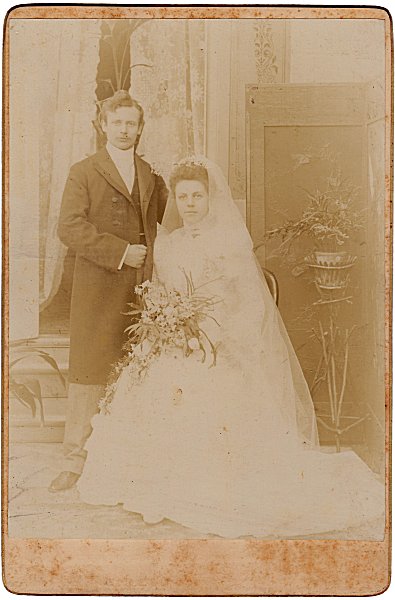
Walter and Florence on their wedding day - 26 December 1901.
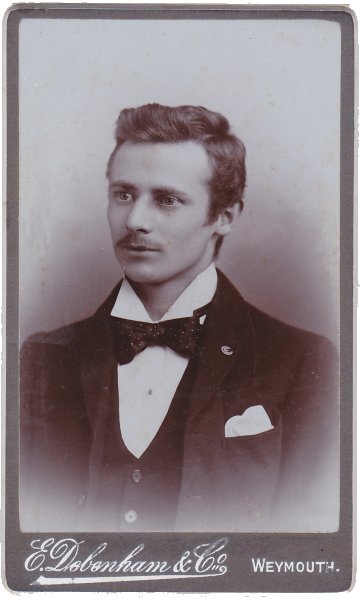
A carte de visite of Walter Rendell by E Debenham & Co of Weymouth, dating to about 1910. It is likely that Walter was employed at Debenham's as a Photographic Assistant at the time. Cartes de visite were introduced in Britain in 1859 and were a relatively cheap way for almost anyone to have their photograph taken. Cartes de visite (also known as cartes or CDVs), are small paper-on-card photographs. They typically measure 4" x 2½" (102mm x 62mm) and the photograph which was pasted on to the card was roughly cut to about 3½" x 2¼" (90mm x 57mm).

Cartes de visite of Walter Rendell's parents, Henry and Charlotte, by E Debenham & Co of Weymouth, probably photographed around 1908 (just before his mother's death) and possibly photographed by Walter himself.
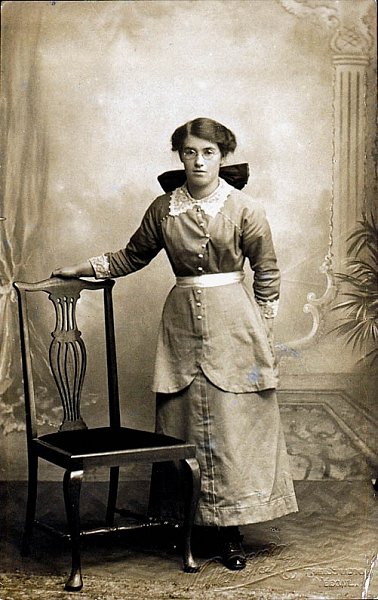
A photograph by Walter Rendell taken in his Yeovil studio, probably around 1914.
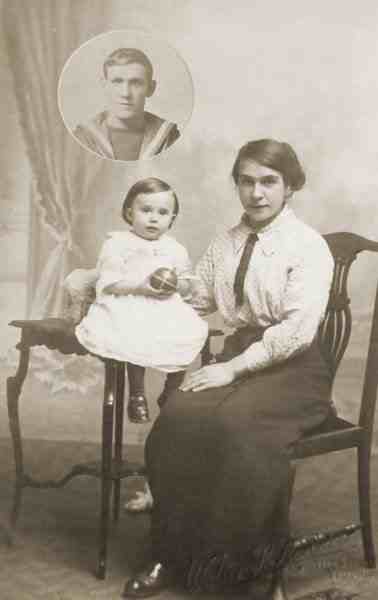
From my
collection
A studio portrait produced as a postcard, presumably during the Great War. To inset a photograph of the lady's husband was quite a common practice and indicated his absence - either by serving, or being killed, overseas.
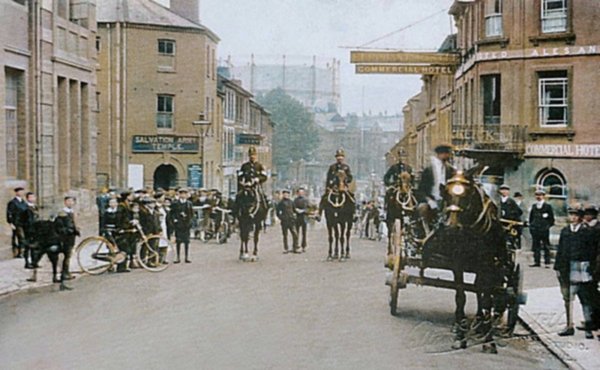
This
colourised photograph
features in my
book 'Yeovil From Old Photographs'.
By 1918, the date of this Rendell photograph, the former Western Gazette offices were being used as a Salvation Army Temple. Note the gas holder dominating the view into town.
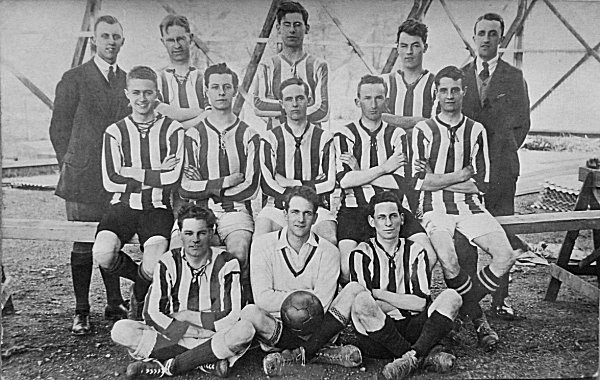
Yeovil Town Football Club, photographed by Walter Rendall in 1925.
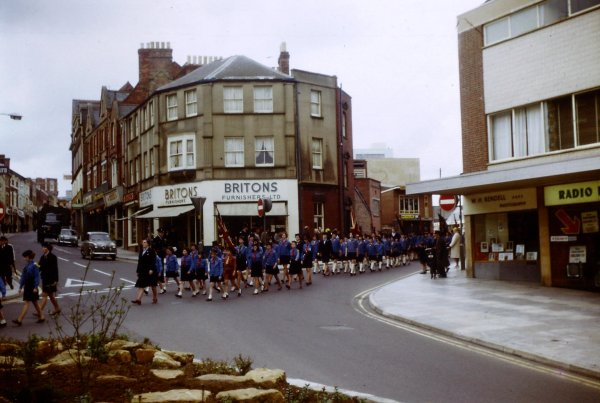
Photographed by
Doug Keyse,
courtesy of Andy
Keyse
The contingent of Girl Guides in the 1968 St George's Day parade enters the Triangle. Notice Britons furniture shop on the corner of Middle Street and Vicarage Street and Walter Rendell's shop and studio, on the opposite corner next to Radio Rentals.